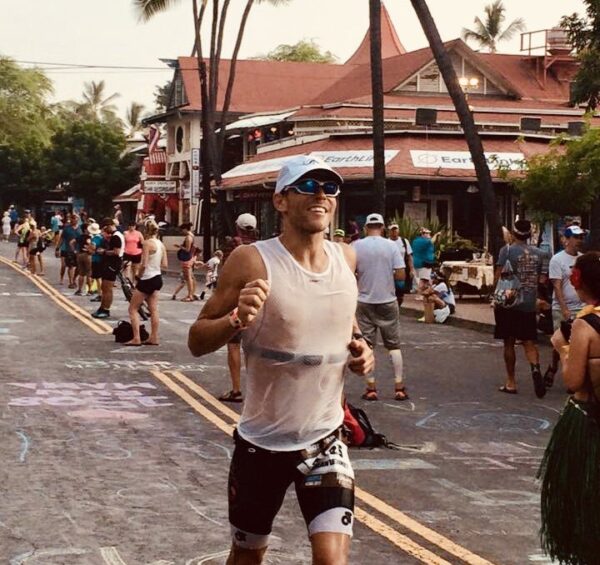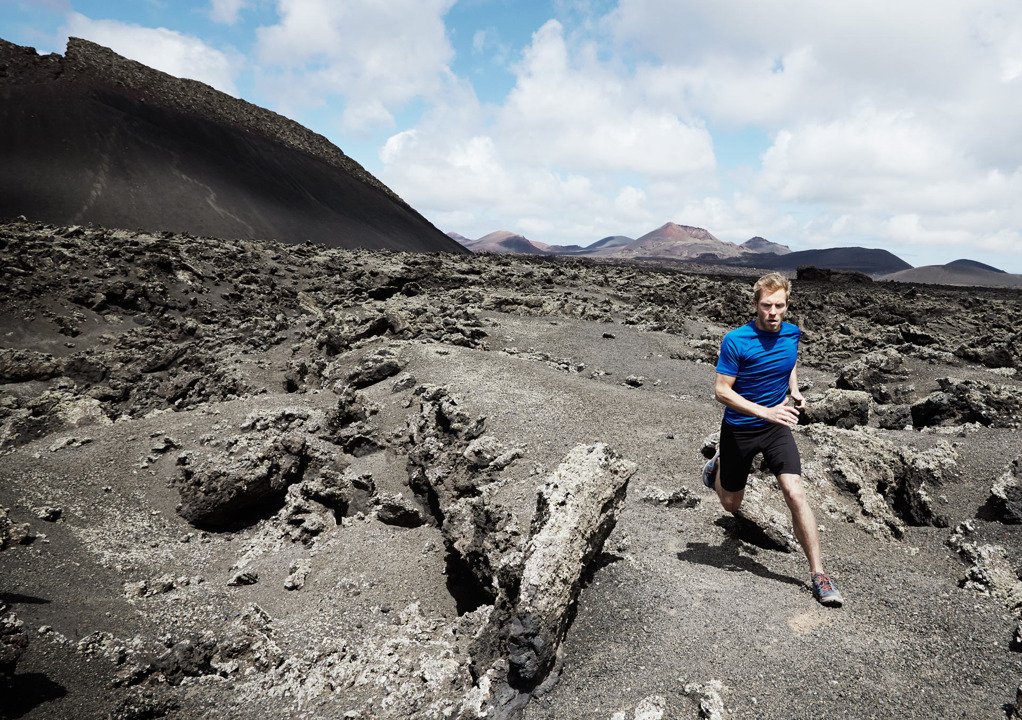
Training for Ironman World Championships
We have a couple of Ironman finishers in the office, but there is a certain distinction within the sport. While many see Ironman as the ultimate test for themselves, there remain those always looking to push the challenge further.
Nobody is entering long distance races without a personal goal in mind, but racing with the intention of qualifying with a golden ticket to the Ironman World Championships in Kona takes a very particular motivation. We managed to catch up with friend of Yellow Jersey, Alan Scott.
A member of one of our local triathlon clubs, trainer with Embrace Sports and founder of Bike Box Buddy, Alan spoke to us about his entry into the sport, and what it takes to compete in triathlon all the way to Hawaii. Original interview from September 2015.
How did you get into triathlon?
It was around 2007 I think, I was 26, 27. It was weird, I woke up one morning after a night out in town and it was another weekend where I’d over indulged a bit. I thought it was probably a good idea to just sign up, to get a bit more fit. I think it’s always good to have some kind of target, so I chose an Olympic distance triathlon. If you don’t sign up, you just never get round to it. Literally, that morning I paid the money and I think I had about six weeks to get fit and borrow all the kit.
Most people entering Ironman distance events tend to see the finish line as the end goal. They are training to complete that event and once they have, they have achieved the thing they set out to achieve. Obviously when racing in Frankfurt, your goal was qualifying for the Ironman World Championships in Kona. Does that change your mindset going into the event? Not just finishing but competing for a qualifying position?
I’ve always had a goal time, or a goal in mind. I’ve never gone into something just to finish and this year I felt like Kona was realistic. So it was just working out what I needed to do.
Come race day in Frankfurt I knew exactly what I needed to do and on the day itself the only thing unplanned for was the weather. It was 39 degrees on the day. You know what you want to do in terms of times, but at the same time you need to look at the bigger picture because it’s just so hot. I just tried to compete and acclimatise as much as possible beforehand. In the end I think it worked out in my favour. I work quite well in the heat and I think a lot of people melted.
So hopefully that will work in your favour a bit at the Ironman World Championships?
Yeah, I think it will. I don’t really mind the heat. I’m going out there about a week before to kind of get used to it. I can’t wait for the race.
Do you have a target for the race itself?
In Hawaii wind can play a massive factor on the bike, you can really try to aim for a time, and from what I’ve heard, that’s really a place where people can get unstuck. A lot of people go out really hard on the bike because they are surrounded by uber athletes, everyone’s thinking “shit, they’re all going past me” so my plan is very much to do my own thing on the bike. Otherwise, it can really come back and kick you on the arse on the run.

(Alan Scott, photograph by Mickael Dwornik for ecco shoes)
Most people racing are the best of all the races they have done, and a lot of people there have raced Kona numerous times before and know how it works. But you don’t know how well they are going to do, and if they are going to blow up on the bike.
I think you really have to do your own thing. I’m hoping that if I do that, 20% of that field will have gone out too quickly and will blow up, even though they are super athletes and then toast the run. Hopefully I’ll beat them because they didn’t execute their race.
Triathlon isn’t your profession, but must be a big part of your life. How much time are you putting into training and how does this compare to a typical summer?
I think if you are going to do an Ironman and want to get round in a respectable time, you need to dedicate a large proportion of your life to training. You need to be getting in the 5, 6 hour rides. You need to be running 3 or 4 times a week and swimming and building up that fitness. You need to enjoy it, but it does require a big commitment.
You usually take the fourth and fifth week before the race as the biggest weeks in terms of training. And then with three to two and a half weeks to go, you gradually start tapering. The idea is that fitness drops a tiny bit during those last few weeks, but you become entirely recharged and good to go.
One thing you do have to watch a little bit, as you start losing the hours of training, is you need to stop eating so much as well. You don’t want to put on weight and by race day be a fat bastard! It’s just about getting that balance. I know a lot of people doing the marathon will say three weeks before hand, “time to start tapering, carb loading time!” and they put on a stone before the race because they don’t realise they aren’t exercising anywhere near as much as they were.
You must pay a fair bit of attention to your nutrition throughout the year. Are there resources you use to plan that?
It’s a massive, massive part of long distance triathlon racing, and so I actually follow a low carbohydrate, higher fat diet and lifestyle.
The idea behind that is you become more metabolically efficient and your body becomes better at burning fat for fuel. Come race day, I don’t worry about putting thousands of calories in, because my body is very efficient at burning its excess fat as fuel. I can get quite a high intensity of exercise with my body still burning its own fuel, without going through all my carbohydrate stores.
Paying attention to nutrition will definitely make you a better triathlete, but it can also make you healthier. There are so many triathletes who have so much sugar in energy gels and it’s really, really bad for you. If people aren’t careful, they are going to set themselves up for diabetes in later life.
There are these people who look amazing on the outside, but if they are just having energy gel after energy gel and they are competing on them for years and years, your blood sugar levels and insulin are going to be up and down all the time. The penny is gradually dropping about this. Athletes, because they are athletes, think they are ok, whereas even if you are burning it off, the sugar is still causing problems for you.
Signed up for an Ironman this year? Make sure you have propper Ironman Travel Insurance to cover medical mishaps and repatriation if you injure yourself racing overseas.